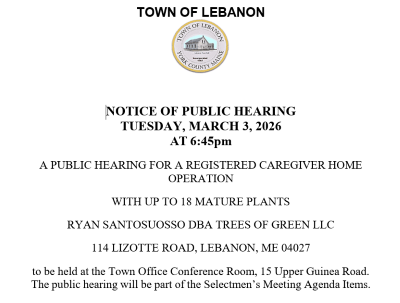
MANCHESTER - Catholics in New Hampshire and Maine and around the world are mourning the death of Pope Emeritus Benedict XVI on Saturday.
"Today our vigil comes to a close as we mark the passing into Eternal Life of His Holiness Pope Emeritus Benedict XVI," the Most Rev. Peter A. Libasci, Bishop of Manchester, said in a statement on Saturday. "His Faith is made plain for all to read. His many writings, many of which are highly academic and demonstrate the importance of precise language and well-reasoned thinking, and also many spiritual writings that are easy for anyone to understand and appreciate for their simple human touch.
"God sent into the world one who knew simple joys, tragic sufferings and the presence of Jesus crucified, risen from the dead and always among us. As a Successor of Saint Peter, the first pope, His Holiness, our Pope Emeritus Benedict XVI, led the flock of the Good Shepherd through dark valleys of conflict and suffering, to the restful waters of Holy Mass, and green pastures of doctrinal truths explained."
The Catholic Action League of Massachusetts also sent out a statement on the passing of Pope Emeritus Benedict XVI, who died at the age of 95.
Catholic Action League Executive Director C. J. Doyle made the following comment: "There are two initiatives of Benedict's papacy which will be remembered in the annals of the Church. The first is his 2007 Apostolic Letter Summorum Pontificum."
"This ended the unprecedented, unnatural and un-Catholic regime, of nearly four decades, where the ancient Latin liturgy of the Roman Rite---which had done so much to define Catholicism for two millennia---had been, effectively, suppressed by Pope Paul VI."
"At a time when Catholic numbers were declining, this decree proved extraordinarily fruitful in increasing Mass attendance---particularly among young families with children---and in attracting vocations to the priesthood. Benedict's liberation of the Traditional Mass and Divine Office, is now, sadly, being reversed by the current pontiff, but its widespread success means that it will not be easily undone."
"The second historic achievement of the Benedict pontificate was the creation, in 2009, in England, America and Australia, of the Anglican Ordinariates, which allowed Anglicans seeking union with Rome a corporate existence within the Catholic Church, while retaining their cultural and liturgical patrimony."
"This has laid the foundation for a future Uniate church and, potentially, a second Western Rite of Catholicism."
Born Joseph Ratzinger in Bavaria in 1927, he was conscripted from his Catholic high school classroom into the German Army in 1943. Ordained to the priesthood in 1951, he earned his doctorate in theology in 1953.
A distinguished academic, Ratzinger would spend the next 24 years teaching theology and philosophy at various Catholic universities in Germany. From 1962 to 1965, he served as a peritus, or expert consultant, at the Second Vatican Council.
In March of 1977, Pope Paul VI appointed Joseph Ratzinger Archbishop of Munich and Freising. He was consecrated a bishop in May, and elevated to the Sacred College of Cardinals in June of that year.
In 1981, Pope John Paul II made Cardinal Ratzinger one of the senior officials of the Roman Curia, when he was named Prefect of the Sacred Congregation for the Doctrine of the Faith, a position which he would hold for the following 24 years. In 2002, he became the Dean of the College of Cardinals.
In 2004, Ratzinger sparked international controversy when he issued a statement declaring that Catholic public officials who support abortion and euthanasia should be refused Holy Communion on the grounds of their formal cooperation with evil and their obstinate persistence in manifest grave sin.
In April, 2005, following the death of Saint John Paul II, Cardinal Ratzinger was elected, at the age of 78, the 264th successor to Saint Peter as Bishop of Rome, taking the name Benedict XVI.
After a historic pontificate of eight years, Benedict resigned as Pope in February of 2013.
The Catholic Action League called Benedict "a good man and an orthodox pontiff, who, under trying circumstances, did much to salvage the traditional Faith from the wreckage of post conciliar Catholicism."
Doyle said in his Saturday statement that "Benedict was much maligned in the secular media over clerical sexual abuse, but even Nicole Winfield of the Associated Press admitted that Benedict was 'responsible for turning the Vatican around on the issue', describing as 'revolutionary' his 2001 decision, while still head of the Holy See's doctrinal office, 'to assume responsibility for processing those cases after he realized bishops around the world weren't punishing abusers...'
"Benedict went on to defrock more than 800 molesting priests, including the notorious and previously untouchable, Reverend Marcial Maciel Degollado of the Legionaries of Christ.
"Like his predecessor, Saint John Paul II, Pope Benedict XVI was forthright and unyielding in his defense of the sanctity of innocent life, the immutable character of marriage, and an objective moral order founded upon Sacred Scripture, natural law, and 2000 years of magisterial teachings.
"Future Catholics will judge Benedict XVI to have been a good pope, faithful to his vows, dedicated to his vocation, and conscientious in discharging the obligations of his office."













